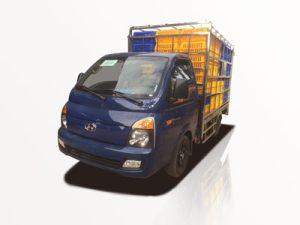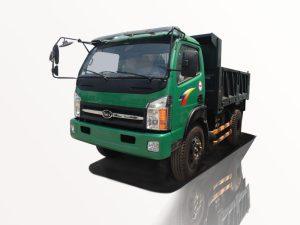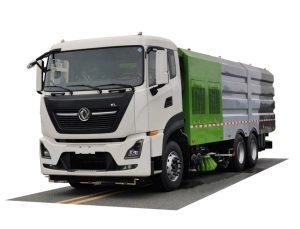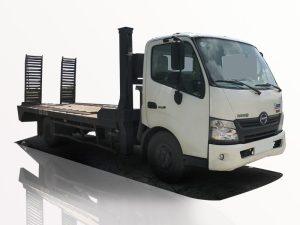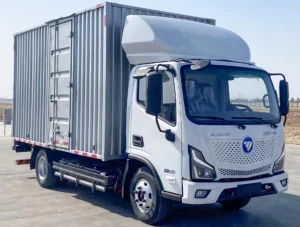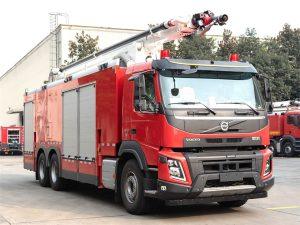Monday to Saturday - 8:00 -17:30
Ultimate Guide to Finding the Perfect Refrigerator Truck for Sale
Are you in the market for a refrigerator truck to support your transportation and logistics needs? Whether you’re a budding entrepreneur, a seasoned business owner, or simply a logistics enthusiast, acquiring a refrigerator truck for sale can be pivotal to your success. This comprehensive guide will provide you with an in-depth look at refrigerator trucks, helping you make an informed decision and find the best unit that meets your requirements.
What is a Refrigerator Truck?
A refrigerator truck, often referred to as a reefer truck, is a temperature-controlled vehicle specifically designed to transport perishable goods. These trucks are equipped with a refrigeration unit that maintains a consistent and controlled temperature, ensuring the freshness of the cargo being transported. Common products transported in refrigerator trucks include:
- Food products (meat, dairy, fruits, and vegetables)
- Pharmaceuticals
- Floral arrangements
- Other temperature-sensitive materials
Importance of Refrigerator Trucks in the Industry
Refrigerator trucks play a critical role in the supply chain of various industries. They ensure that perishable items remain fresh during transportation, reducing waste and maintaining product quality. As the demand for fresh produce, frozen foods, and pharmaceutical products continues to rise, the need for reliable refrigeration transport becomes more prominent.
Types of Refrigerator Trucks
When searching for a refrigerator truck for sale, it’s essential to understand the different types available on the market:
1. Straight Trucks
Straight trucks are typically used for local deliveries and vary in size. They combine the cab and cargo area into one unit. These trucks are ideal for smaller businesses needing to transport products over short distances.
2. Semi-Trailer Trucks
Semi-trailer trucks consist of a cab and a detachable trailer. These trucks are suitable for long-distance transport and can carry larger volumes of goods. They are commonly used by larger logistics companies and freight carriers.
3. Box Refrigerated Trucks
Box refrigerated trucks are enclosed cargo vehicles that maintain temperature-controlled environments for transporting sensitive goods. They are versatile and often used in local and regional transportation.
4. Cargo Vans with Refrigeration
These smaller units can be a great option for businesses that don’t require larger trucks. They are efficient for deliveries of smaller loads that still need to be temperature-controlled.
How to Choose the Right Refrigerator Truck for Sale
Selecting the perfect refrigerator truck can seem overwhelming, but considering the following factors can simplify the process:
1. Capacity Needs
Evaluate how much cargo you need to transport regularly. Understanding your volume requirements will help you choose the appropriate truck size.
2. Temperature Control Requirements
Different products require different temperature settings. Some items may need to be kept at freezing temperatures, while others require cooler conditions. Make sure the truck can maintain the necessary temperature for your products.
3. Distance of Transportation
If you’re planning long-distance transport, consider semi-trailer trucks for their larger capacity and durability. Short-distance deliveries may require a smaller truck or a straight truck for easier navigation.
4. Fuel Efficiency
Fuel costs can greatly impact your operational expenses. Research the fuel efficiency of different truck models and how they align with your budget.
5. Maintenance and Repair Records
If you are purchasing a used truck, it’s vital to look at maintenance and repair records. A truck with a good maintenance history is likely to perform better and last longer.
6. Budget and Financing Options
Define your budget before starting your search. Assess financing options offered by sellers or third-party lenders if you need assistance purchasing a truck.
Where to Find Refrigerator Trucks for Sale
Here are some effective avenues for finding refrigerator trucks:
1. Online Marketplaces
Websites like TruckPaper, Trucks.com, and eBay provide a wide selection of both new and used refrigerator trucks. You can filter by price, mileage, location, and other specifications.
2. Dealerships and Manufacturers
Contacting local dealerships or manufacturers can provide you with reliable options. These businesses often have new models, along with certified pre-owned trucks that come with warranties.
3. Auctions
Truck auctions are an excellent way to get a good deal on a truck. Check websites like Ritchie Bros. and local auction houses for upcoming events.
4. Classified Ads
Consider looking into local classified advertisements and online platforms like Craigslist. However, caution is advisable when dealing with private sellers.
Cost Considerations for Refrigerator Trucks
The cost of refrigerator trucks can vary widely based on factors such as condition, brand, and features. Below are some general price ranges:
| Truck Type | Price Range (New) | Price Range (Used) |
|---|---|---|
| Straight Trucks | $40,000 – $80,000 | $15,000 – $40,000 |
| Semi-Trailer Trucks | $70,000 – $150,000 | $30,000 – $70,000 |
| Box Refrigerated Trucks | $45,000 – $90,000 | $20,000 – $50,000 |
| Cargo Vans with Refrigeration | $30,000 – $60,000 | $10,000 – $30,000 |
Maintenance Tips for Refrigerator Trucks
Proper maintenance of your refrigerator truck is essential to ensure longevity and peak performance. Here are some key maintenance tips:
1. Regular Inspections
Conduct routine inspections to check for potential issues such as leaks, worn tires, or malfunctioning refrigeration units. This will help identify problems early on before they escalate.
2. Clean Refrigeration Units
Keep refrigeration units clean and free of ice buildup. Periodically inspect and clean the condenser coils as poor airflow can lead to inefficient cooling.
3. Monitor Temperature
Install temperature monitoring systems to ensure the cargo area stays at the desired temperature. This is crucial for maintaining the quality of perishables.
4. Schedule Professional Maintenance
Establish a schedule for professional servicing. Technicians can diagnose more complex issues and perform necessary repairs or replacements.
Legal Considerations for Operating Refrigerator Trucks
Before operating a refrigerator truck, it’s important to understand and comply with applicable regulations:
1. Licensing and Permits
Ensure that you have the correct commercial driver’s license (CDL) to operate a truck of this size. Additionally, check if any specific permits are required for transporting certain products.
2. Health and Safety Compliance
Depending on your cargo, you may need to comply with health and safety regulations. For example, transporting food items may require adherence to food safety standards.
3. Insurance
Acquire proper insurance coverage that protects your business, your truck, and your cargo. Consult with an insurance agent who understands commercial transportation needs.
Common Questions About Refrigerator Trucks for Sale
Frequently Asked Questions
1. What features should I look for in a refrigerator truck?
Look for features such as adjustable temperature settings, reliable refrigeration systems, and good insulation. It’s also useful to have GPS tracking and monitoring systems.
2. Can I finance a refrigerator truck purchase?
Yes, many dealerships and sellers offer financing options. You can also seek financing from banks or credit unions that specialize in commercial vehicle loans.
3. How do I maintain the refrigeration unit?
Regularly clean and inspect the refrigeration unit, monitor temperature levels, and schedule professional service to maintain efficiency and avoid breakdowns.
4. Are used refrigerator trucks a good investment?
Used refrigerator trucks can be a great investment if they are well-maintained and come with a good history. They are often more affordable and can provide significant savings on the purchase price.
5. How does the temperature regulate in a refrigerator truck?
The refrigeration unit uses a compressor and evaporator system to maintain a specific temperature. This process circulates refrigerant to remove heat from the cargo area.
6. What are the costs involved in owning a refrigerator truck?
Costs include the initial purchase price, insurance, fuel, maintenance, and any permits or licenses required for operation. Don’t forget to budget for unexpected repairs as well.


